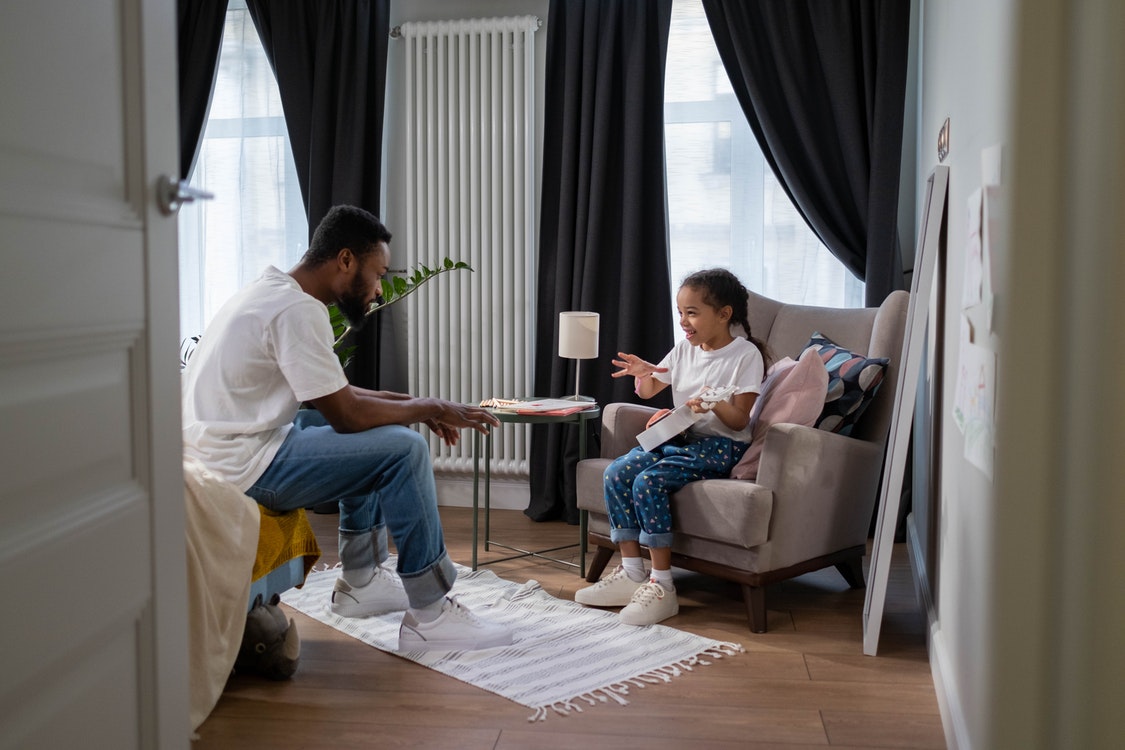Children are naturally curious and develop a fascination with pretty much everything they come across. During toilet training, children begin to have access to their genitals and recognize that they have a special function. Around the age of 5, it is normal for children to discover that touching their genitals brings pleasure or comfort.
Children at that age also begin to recognize the differences between boys and girls, and may become curious about the opposite sex’s private parts.
From a medical standpoint, childhood and toddler genital stimulation is not inherently harmful and is considered to be a normal part of development. Children do not usually attach connotations of sexuality and sexual acts with genital play like adults do. More often than not, these behaviors occur as self-soothing mechanisms, much like thumb sucking is, or as a way to satisfy their natural curiosity.
Many parents are understandably alarmed when they see their 5 year old daughter suddenly obsessed with her private parts. While most likely normal, signals a need for information and education which you, as a parent, need to provide.
5-Year-Old Daughter Is Obsessed With Private Part
When is it Normal?

Masturbation, exhibitionism (showing one’s genitals to others), and mutual curiosity directed at a peer’s or a new sibling’s genitals are generally considered to be normal. These behaviors are more likely to be seen in children up to the age of 5, after which it decreases until adolescence is reached.
Children often do not have a clear enough understanding of social norms to recognize that these behaviors should be kept private and personal. This may lead to young children touching their genitals in public.
Children may also become curious about each other’s genitals, which may lead to some looking and touching between playmates or siblings. Genital play between young children is considered normal within the following bounds.
- Children are close in age, know each other well, and are both under the age of 6.
- Children are in mutual agreement and play is non-coercive (i.e., “Playing doctor” or “I’ll show you mine, you show me yours”).
- Children do not have negative emotional or physical reactions during or after the act.
Normal sexual behaviors in young children are generally few and respond well to parental redirection or distraction. Be reminded that for most children, it is simply a matter of self-soothing and satisfying curiosity.
When To Be Concerned?
While most sexual behavior in young children is innocent and harmless, certain situations may signal a need for more concern. If your 5-year-old daughter becomes obsessed with her private parts, or you notice any of the following, they may fall into the category of atypical behaviors and may warrant a conversation with your child’s pediatrician.
- Behaviors that occur frequently and interfere with other normal daily activities.
- Mimicking or simulating sexual acts such as intercourse or fellatio.
- Behaviors involve coercion.
- Behaviors happen in conjunction with other deviant behaviors.
- Behaviors cause physical or emotional distress, injury, and pain to themselves and/or others.
- The child seems increasingly anxious, sad, or withdrawn.
- Behaviors are causing genital trauma such as scratching, bruising, or discharge.
- Behaviors involve children who are more than 4 years apart in age.
- Behaviors reoccur even after parental intervention has taken place.
What You Can Do

-
React Calmly
If your 5-year-old-daughter is obsessed with her private parts, their own or otherwise, don’t panic. Your child will pick up on your emotions and clam up, making it more difficult for the both of you.
While children need to learn that private parts need to be kept private, they should also know that sexuality is nothing to be ashamed about.
For example, if your child plays with their genitals at the dinner table, matter-of-factly tell them that what they are doing is a private behavior and that they can go into their bedroom if they want to do that.
By getting angry or reacting harshly, you send the message that genitals are “bad” or “dirty”, which may cause your child to feel shame surrounding the subject. Never tell your child myths or old wives’ tales like “you’ll go blind if you do that” or “It’ll fall off if you keep doing that”. While they may cause your child to quit the behavior out of fear, it creates unnecessary guilt and leaves them with unhealthy sexual attitudes.
-
Use Distractions
If you notice your child touching themselves in public or in front of other people, tell them that they must wait until they are home to do so, and give them something else to distract them, such as a toy or a snack.
Some children may play with their private parts as a way of soothing their anxiety, especially during a period of adjustment or transition, such as moving to a new neighborhood or starting school or daycare. If you suspect that this is the case, offering your child an alternative way of relieving tension may be the answer. Increasing the amount of physical affection you show them may also help.
-
Teach Boundaries

Your child should know that there is nothing bad or shameful touching their private parts, but that there is a right time and place for doing so, such as the bathroom or their bedroom and at bedtime or naptime. All parts of their body are good, but some of them are more private than others.
Explain to your child know that their private parts are their own and that the only people who are allowed to see or touch them are themselves, their parents during baths or while helping them get dressed, or the doctor during a check-up. Explain to them that touching or looking at other people’s private parts, even their friends’, is not allowed either.
You may also want to use this as an opportunity to teach your child about “good touch” and “bad touch”. You can start by describing “good touch” as a touch that people use to help each other and show care, and makes them feel safe (hugs from friends, mom or dad helping them in the bath, doctor’s examination), and a “bad touch” as a touch that makes them feel afraid or unsafe (touching private parts, hitting, pushing).
Tell your child that it is okay to say “no” to anyone who makes them feel unsafe or uncomfortable, even family members and close friends, and to report to you anyone who gives them a “bad touch”, even if someone makes them promise to keep it secret. Assure them that you will not get mad at them and that you will always believe them.
-
Have “The Talk”

While you don’t have to teach your 5-year-old about adult sexuality just yet, teaching them which parts of their body are private (such as the ones covered by underwear or a bathing suit) and what they are called may be a good way of satisfying their curiosity.
When teaching your child about their private parts, use correct terminology such as penis, vagina, buttocks, nipples, etc. Avoid using nicknames or euphemisms for their private parts, which may cause future miscommunications and leave your child with the idea that there is something bad or wrong about the proper name.
At the same time, be prepared to answer any questions your child may have for you. Keep your answers short and age-appropriate. There are many books and internet resources that you may use to teach your child about these things, should you have trouble finding the right words.
-
Review Their Media Exposure
Children soak up the world around them like sponges, and they may try to imitate things they see around them. If your children have their own devices, set parental controls on devices and internet routers to restrict the content they are exposed to. If your children have access to your devices or an older sibling’s device, setting up separate “child-friendly” accounts for them to use does the job just as well.
Final Thoughts
It can feel worrying when your 5 year old daughter suddenly becomes obsessed with her private parts, but it’s a natural – if admittedly awkward to deal with – part of their development. That said, the habit should start decreasing as they grow older. If it doesn’t, you may want to look into your options.




